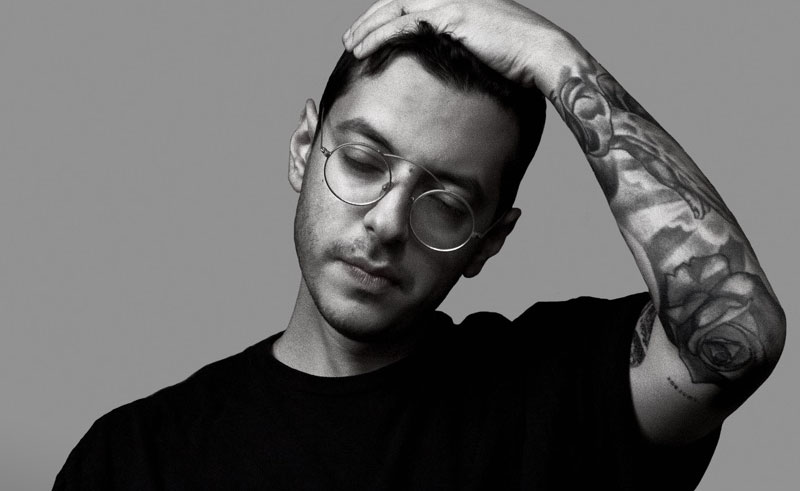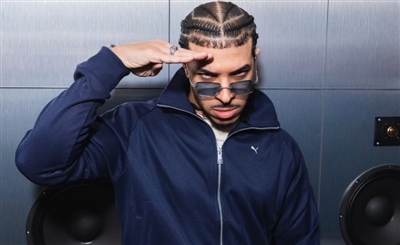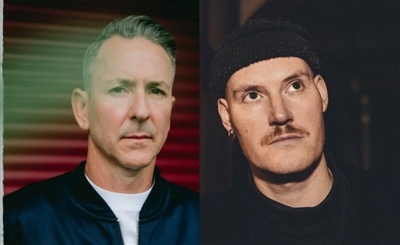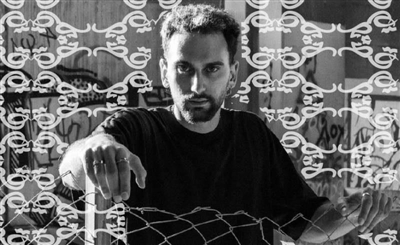Lebanon Native Offrami on Dance Music, COVID-19 and the US vs MENA
SceneNoise's Yassine Hariss sits down with the US-based DJ and producer to shoot the breeze on everything from his latest release on Spinnin' Records, to how he's coping with the pandemic.

Although increasingly popular, dance isn’t the first genre that usually comes to mind when we think of the Arab world’s music scene. However, Offrami is effortlessly breaking most cultural stereotypes associated with the region whilst bringing fresh flavours and new colourful tones to the area. Lebanese by blood, but citizen of the world by means of his music, the young artist and producer is set to release his third single of the year, 'Drunk Calling', by giving us a glimpse of what a COVID-free night out would sound like right now (and that we’re all so desperately craving for).
Exploring joy in an electronic form through an up-beat keyboard and slick vocals, Offrami turned his pads into what could become his next global hit - and we’re not the only one’s to believe so. Released under Robin Schulz's label Mentalo, affiliates of the mighty Spinnin’ and Warner GSA records, his tracks have been more than well received so far, only expecting this new partnership to help him reach new milestones.
Cruising between his different socials, it’s safe to say that Offrami is a creative and popular composer having managed to rapidly gather a community of over 20K subscribers on Instagram whilst also racking an average of half a million listeners a month on Spotify alone - daunting numbers that are quite clear evidence of Offrami’s talent and productivity.
Very liberating and catchy, we caught-up with the young DJ amidst his up and coming release to talk about his experience with music so far: meet Rami Eid.
Some of our readers may not be familiar with your work, how would you introduce yourself to those that have not been exposed to your music yet?
I think that I would describe myself as a versatile DJ who is open to creating all types of genres of music, which is to some extent a blessing and a curse at the same time. I made a lot of pop and dancehall records last year, but I have also explored a lot of tropical house and Latino music in the past as well. This year we decided to narrow it down and mainly stick to electro and dance just because, at the end of the day, our main objective has always been to build a coherent brand and a strong creative identity around everything we do under 'Offrami'. Unfortunately, there might be some songs that will never see the light of day or, who knows, might even be released under alias.
Within the past year, the whole planet has had to redefine their definitions of fun and partying. However, you seem to have managed to give birth to the musical manifestation of carpe-diem through your newest track, 'Drunk Calling', despite these dull and dim times - what triggered the production of this song?I think that what triggered it most is the feeling of wanting things to get back to normal as soon as possible. 2020 was a frustrating year for all of us and music has always been my way of expressing myself, especially during uncertain and difficult times. I wanted to create something that can get us out of this depressing bubble that we are all in, something that can make you forget about the dullness that is all around us.
What is your experience so far with live music? Have you found ways to perform even with COVID around? What is the ultimate event you’d like to play at?
Ever since I was a kid, I’ve had dreams of playing at festivals. 2020 was actually the first year my team and I were planning on making it all happen and started reaching out to booking agencies but then of course COVID happened. I’ve always felt weird towards performing. Thinking of it makes me anxious, but I guess it’s all about stepping out of your comfort zone. I’ve done a couple gigs before and I’ve had a blast every single time. The rush is beyond words and once you mix that with a receptive crowd, I’m usually good to go.
I actually did manage to perform for a digital festival last year when the whole pandemic was going on. At first I was confused and felt a bit uneasy but thinking back at it now it was so much fun. Seeing people dance on zoom was definitely refreshing and did get me excited to get out there properly again. But my ultimate event is definitely Coachella without a doubt - we’ll make it happen when the time is right and when we’re over all of this once and for all.
Talking of aims and goals, 'Drunk Calling' is your third release this year which is under Spinnin’ Records - isn’t that an achievement already? How does it feel? Tell us how it happened.
I definitely find it being an achievement. Every electronic artist's goal is to release at least one track with Spinnin’. I’m super grateful to have had that opportunity. For the past year or so, I’ve been releasing music independently. My team and I have been super picky with our release plan, trying to figure out what suits us best at all times. It’s been a while since I’ve had a release with a major label and when we finished 'Drunk Calling', it just felt like it needed a special home. It’s not only being released by Spinnin, but also by Mentalo Records, which is a sub label under Spinnin that is run by Robin Schulz, which has been one of my few inspirations growing up in the scene and having had that opportunity still sounds surreal to me.
Talking of record labels and production, it seems like you’ve had a fair experience with the music industry in Lebanon from your background and the US from, do you think that one country is more receptive and welcoming to your records than the other?
As part of labels and the music business itself, I’ve never really had an experience here in Lebanon. I feel like I could talk about this topic for ages. It really sucks for me to say this but I never really focused on Lebanon as a market for my music as I feel like there just isn’t a market for it. I don’t think there’s anything wrong with that. I think that the electronic music scene in Lebanon is narrowed down to some specific genres simply because it’s the same genres you’ll hear in most clubs. I might be wrong but that’s just my opinion. It makes it tougher on younger artists too because it demotivates them from producing the type of music they deep down like just because it’s not recognised by certain venues or certain people. I’ve collaborated with a lot of Lebanese artists and there’s so much talent in the region but I’ve never really distributed music or released music with any label in Lebanon or the MENA region.
My main focus and goal has always been to seek outside of what’s around here just because I’ve always had this impression that there’s a lack of opportunity in Lebanon. That was also the whole purpose behind my label Lost Boy. Creating a label from the region to the entire world. It’s something I personally have experienced - sometimes after I finish certain tracks, the thought of questioning whether the people in my own country are going to like this song or not always gets to me.
- Previous Article test list 1 noise 2024-03-13
- Next Article PharaohGamo Releases Debut Arabic Single ‘Enti Fein’ as Gamiano
Trending This Month
-
Jan 29, 2026






















